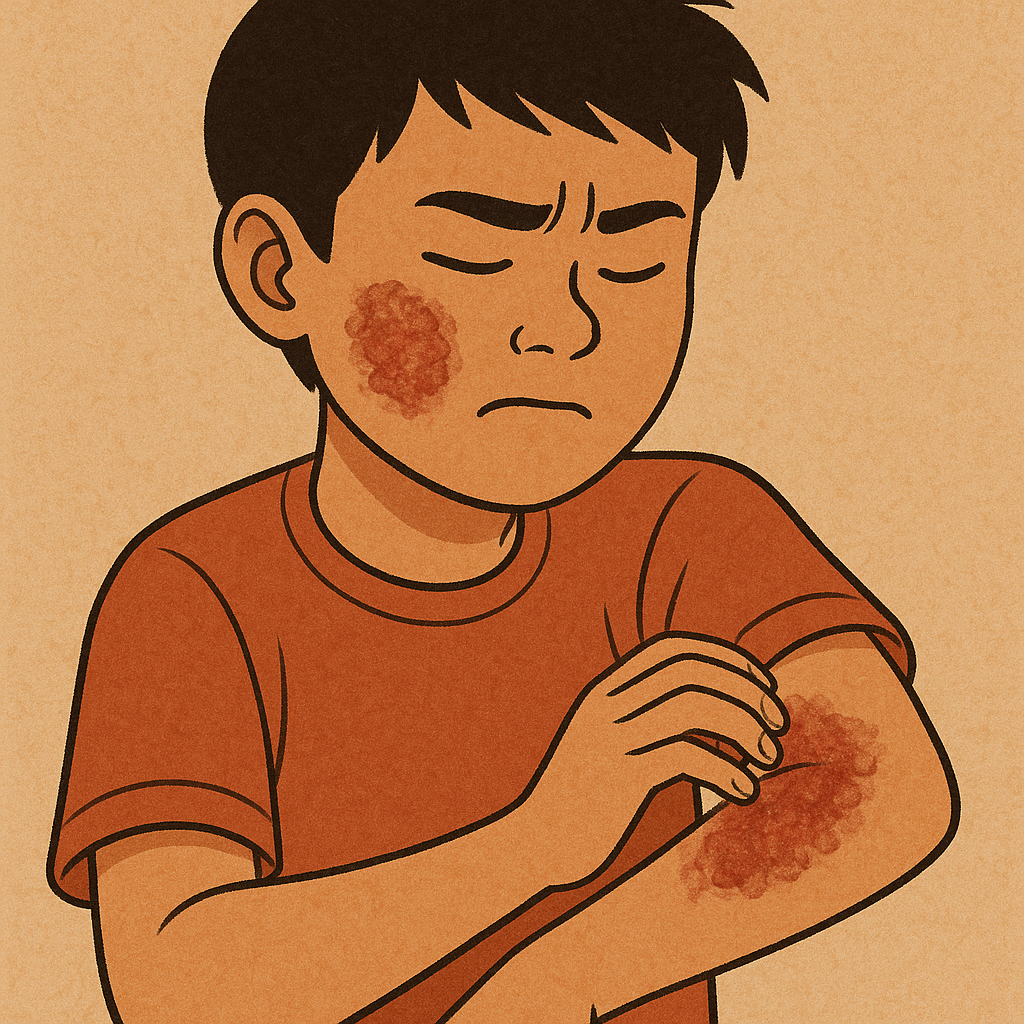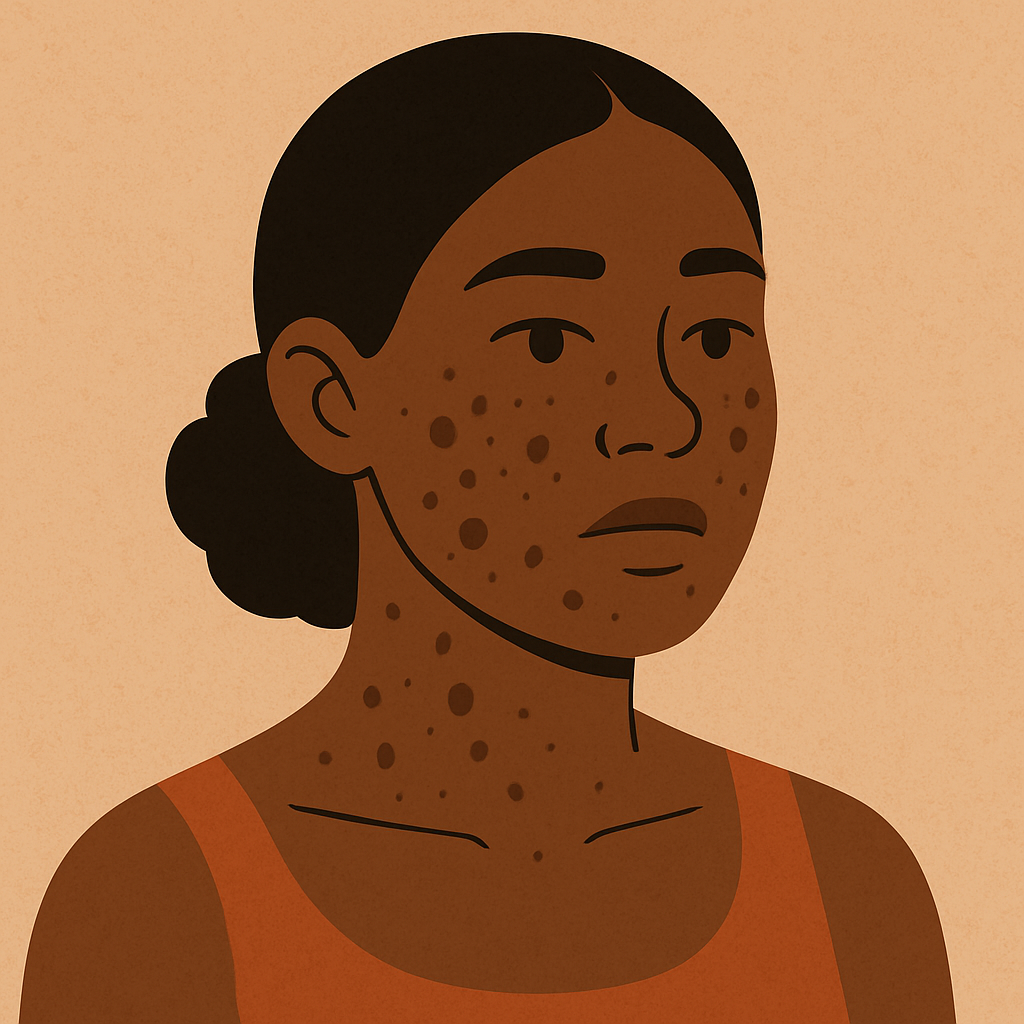
Eczema, or atopic dermatitis, is one of the most common chronic skin conditions out there. But it doesn’t look the same on everyone. Medical textbooks and images tend to primarily show eczema on lighter skin. This is a huge problem. This lack of representation makes it harder to identify and treat eczema in individuals with darker skin tones. It can be especially hard when trying to identify eczema on those with Asian skin because the inflammation may present as discoloration. Not to mention, eczema is also very common among Asians and Pacific Islanders! In this article, we will explore how eczema looks on Asian skin and its importance to adequately represent all skin tones in dermatology.
So, first things first—what exactly is eczema?
It’s a long-term condition that causes itching, dryness, redness, and rashes. Basically, it happens when the barrier of the skin – the outer layer that helps to keep moisture in and irritants out – is simply not operating properly. Countless factors can play a role in this. These include genetics, a bad immune system, environment (the weather), and stress. In turn, this causes the skin to be susceptible to allergens, microbes, and irritants that induce inflammation. Eczema is not at all contagious, but is often a lifelong condition that tends to flare up in cycles.
Eczema on different skin tones
Inflammation can look quite different depending on your skin type. On light skin, redness can show up bright and obvious; on dark skin, instead, it will look more purple, brown, or gray. Other symptoms — e.g., swelling, dryness, or thickened skin — can potentially be easier to detect than colour changes. So if you think you might have eczema, try looking more into the texture of your symptoms rather than the color. In fact, most clinical images and training focus on lighter skin, so subtle signs of eczema in darker skin, especially early on, can be overlooked.
How might eczema look on Asian skin specifically?
Asian skin has characteristics of both lighter and darker skin, but is also its own unique variation. With flare-ups, redness may appear dusky, violet, or reddish-brown instead of the typical bright red that may usually be seen. With a chronic history of eczema, patients may have thickened, leathery patches angled with skin lines that are more pronounced. The most common change, however, is pigmentation—patches that become darker or lighter and can linger for months. Follicular eczema is also common, that is, itchy small bumps around hair follicles, most often on the arms and torso. Finally, stronger topical steroids or skin-lightening creams may worsen symptoms or mask them, making diagnosis more difficult.
Treatment options for eczema on Asian Skin
To manage eczema on Asian skin, your goal would be to both treat the rash and the color changes it can leave behind. Moisturizers and gentle skin care are the first steps, while prescription creams like steroids or non-steroid anti-inflammatory creams can be used to help calm flare-ups. Since Asian skin is more likely to develop dark or light spots after eczema, it’s important to avoid overusing strong steroids or skin-lightening products, which can make things worse. If you’re unsure, a dermatologist who understands different skin tones can help you find the safest treatment plan.
Takeaway
Overall, it is very, very important to identify eczema early on Asian skin. Don’t just be misled by redness. Be sure to consider texture and swelling, and a subtle color change (but again, color changes can be misleading due to differences in melanin!). If you suspect that you have eczema, consult a dermatologist who sees patients across all skin tones. Also, when you make your appointment, be sure to discuss the treatment options that will address both inflammation and pigmentation changes. The more we understand about the way eczema presents across all skin tones, the faster we can help close the gap in dermatologic care and provide a proper treatment that everyone requires and deserves.
References
National Eczema Society. “Skin Pigmentation and Eczema.” National Eczema Society, eczema.org/information-and-advice/living-with-eczema/skin-pigmentation/. Accessed 15 Aug. 2025.
Ruwa, Rashida. “Eczema in Asian Skin: What You Need to Know.” Healthline, 1 Oct. 2024, www.healthline.com/health/eczema-in-asian-skin. Accessed 15 Aug. 2025.
Zhang, J., et al. “Epidemiology and Characterization of Atopic Dermatitis in East Asian Populations: A Systematic Review.” PubMed Central, pmc.ncbi.nlm.nih.gov/articles/PMC8163933/. Accessed 15 Aug. 2025.
Sutter Health. “Atopic Dermatitis (Eczema).” Sutter Health, www.sutterhealth.org/health/atopic-dermatitis-eczema. Accessed 15 Aug. 2025.
WebMD. “Eczema Epidemiology.” WebMD, www.webmd.com/skin-problems-and-treatments/eczema/eczema-epidemiology. Accessed 15 Aug. 2025.

